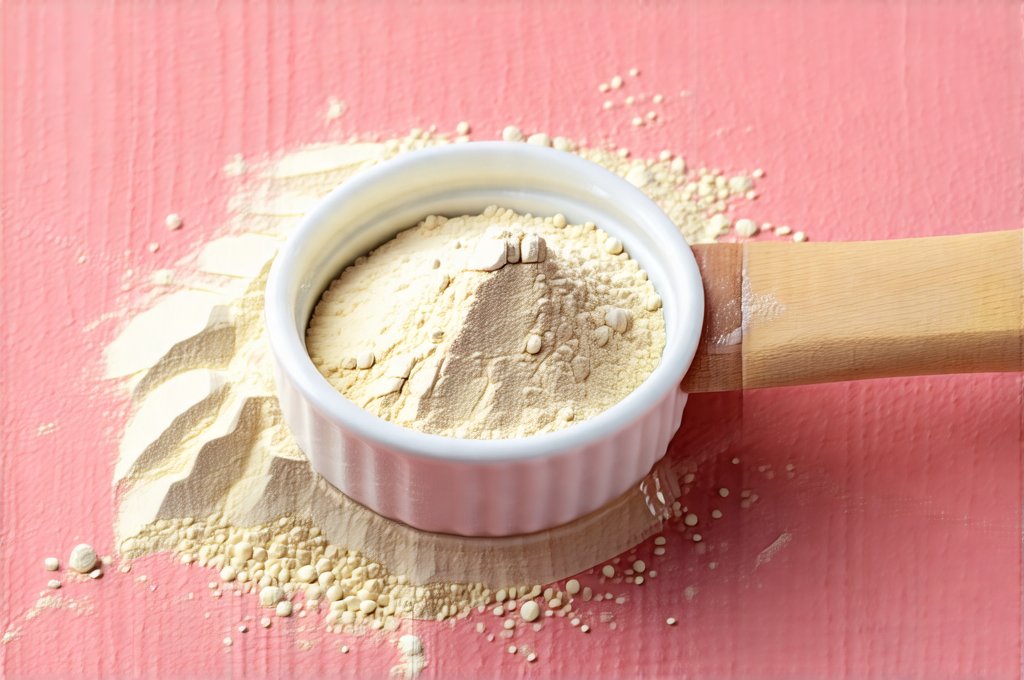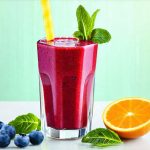Protein powder has become incredibly popular in recent years, fueling everything from post-workout recovery to breakfast smoothies and meal replacements. It’s marketed as a convenient way to boost protein intake, support muscle growth, and manage weight. However, for many individuals, the experience isn’t always positive. A surprisingly large number of people report experiencing significant bloating, gas, abdominal discomfort, and even digestive distress after consuming protein powder. This can range from mildly inconvenient to severely debilitating, leading some to abandon this otherwise beneficial supplement altogether. Understanding why these adverse effects occur is crucial for making informed choices about protein supplementation and mitigating potential problems.
The issue isn’t necessarily with protein itself – our bodies need it! The problem often lies within the specific composition of the protein powder, individual sensitivities, or how it’s consumed. It’s a complex interplay of factors that can vary greatly from person to person. This article will delve into the common culprits behind protein-powder-induced bloating, exploring the ingredients, digestion processes, and strategies for minimizing discomfort so you can potentially enjoy the benefits without the unpleasant side effects. We’ll look beyond simply saying “some people are sensitive” and examine the concrete reasons why this happens.
Common Protein Powder Ingredients & Their Bloating Potential
The type of protein used in a powder significantly impacts its digestibility and potential to cause bloating. Whey protein, casein protein, soy protein, pea protein, rice protein – they all behave differently within the digestive system. Whey concentrate, for instance, contains lactose (milk sugar), which can be problematic for individuals with lactose intolerance or sensitivity. Even those without diagnosed intolerances may experience discomfort if their gut bacteria struggle to efficiently process the lactose present in higher concentrations. Similarly, soy protein can contain compounds called phytates and oligosaccharides that are difficult to digest, leading to gas production. If you suspect food sensitivities are playing a role, exploring why do some foods cause brain fog and bloating can be helpful.
Casein protein, known for its slow digestion rate, is less likely to cause immediate bloating but can contribute to a feeling of fullness and sluggishness if consumed in large quantities. Plant-based proteins, while often considered gentler, aren’t always bloat-free. Pea protein, though popular, contains compounds called purines that some individuals find difficult to process, leading to digestive upset. Rice protein, similarly, can have a high fiber content which, while beneficial overall, can initially cause bloating if your system isn’t accustomed to it. It’s important to remember that these are general tendencies and individual reactions will vary based on tolerance levels and the specific product formulation.
Furthermore, many protein powders aren’t just pure protein; they contain a cocktail of additives designed to improve taste, texture, or shelf life. These can include artificial sweeteners like sucralose or aspartame, sugar alcohols (like sorbitol and xylitol), gums (guar gum, xanthan gum), and emulsifiers (lecithin). These ingredients are notorious for causing digestive distress in some people. Sugar alcohols, for example, are poorly absorbed by the small intestine and ferment in the large intestine, producing gas as a byproduct. Gums can increase viscosity and slow down digestion, leading to bloating and discomfort. Identifying and eliminating these additives is often key to resolving protein-powder-related bloating. Sometimes, even healthy diets can cause discomfort due to hidden ingredients or sensitivities.
Lactose Intolerance & Sensitivity
Lactose intolerance is perhaps the most common reason for bloating after consuming whey protein concentrate. It stems from a deficiency in lactase, the enzyme responsible for breaking down lactose into glucose and galactose – simpler sugars that are easily absorbed. When undigested lactose reaches the large intestine, it’s fermented by gut bacteria, producing gas, hydrogen, and short-chain fatty acids, resulting in bloating, cramping, diarrhea, or constipation. True lactose intolerance is diagnosed through a hydrogen breath test or stool analysis.
However, many people experience lactose sensitivity, which differs from full intolerance. Sensitivity means you don’t lack the lactase enzyme entirely but produce insufficient amounts to efficiently process large quantities of lactose. This can lead to milder symptoms that are often dismissed as general discomfort. Choosing a whey protein isolate or hydrolysate – both forms contain significantly less lactose than concentrate – can be an effective solution for those with sensitivity. Hydrolysates are even further broken down, making them the easiest form to digest.
Lactose intolerance isn’t limited to whey; it’s important to consider all sources of lactose in your diet when assessing potential triggers. Hidden sources include dairy products (milk, cheese, yogurt), baked goods, and even processed foods. If you suspect a lactose issue, temporarily eliminating all lactose-containing foods can help determine if protein powder is the primary culprit or if it’s part of a larger pattern. Understanding why some people get reflux from water and other seemingly benign triggers can also help you pinpoint issues.
Artificial Sweeteners & Sugar Alcohols
Artificial sweeteners and sugar alcohols are frequently added to protein powders to reduce calorie content and enhance sweetness without using sugar. While they seem like a healthy alternative, they often wreak havoc on digestive systems. Sucralose, aspartame, saccharin – these artificial sweeteners aren’t fully absorbed by the body and can alter gut microbiome composition, potentially leading to increased gas production and bloating. The impact varies widely among individuals, with some experiencing no effects while others are highly sensitive.
Sugar alcohols (sorbitol, mannitol, xylitol) pose a different problem. They’re poorly digested and fermented in the colon, creating gas and causing osmotic diarrhea in susceptible individuals. The amount of sugar alcohol present in a protein powder is critical; even small amounts can trigger symptoms for some people. Look closely at ingredient labels – if you see “sorbitol,” “mannitol,” or “xylitol” listed, be cautious. Stevia and erythritol are generally considered better tolerated than other sugar alcohols because they’re absorbed more efficiently in the small intestine, reducing fermentation in the colon. However, even these can cause issues for some people, particularly when consumed in large quantities. Choosing protein powders sweetened with natural alternatives like monk fruit or avoiding added sweeteners altogether is often a safer bet if you’re prone to bloating. It’s also worth considering can protein powders cause stomach problems beyond just bloating.
Gut Microbiome Imbalance & Protein Digestion
The gut microbiome – the community of trillions of bacteria residing in your digestive tract – plays a crucial role in protein digestion and overall gut health. An imbalanced microbiome (dysbiosis) can significantly contribute to protein-powder-induced bloating. When beneficial bacteria are lacking, harmful bacteria can proliferate, leading to increased gas production and inflammation. This imbalance can be caused by various factors including diet, stress, antibiotic use, and chronic illnesses.
Protein digestion begins in the stomach with pepsin and hydrochloric acid, but the majority of protein breakdown occurs in the small intestine thanks to pancreatic enzymes (trypsin, chymotrypsin). However, if your gut microbiome is compromised, it can interfere with this process, leading to incomplete protein digestion. Undigested protein then reaches the large intestine where bacteria ferment it, creating gas and potentially triggering inflammation. Why some smoothies trigger discomfort and others don’t is also related to gut health and digestive processes.
Supporting a healthy gut microbiome through dietary changes – increasing fiber intake (fruits, vegetables, whole grains), consuming probiotic-rich foods (yogurt, kefir, sauerkraut) or supplements, and reducing processed foods and sugar – can improve protein digestion and minimize bloating. Prebiotics (foods that feed beneficial bacteria, like garlic, onions, bananas) are also important for fostering a balanced gut environment. You might even discover why some people react to bananas as part of a larger pattern of food sensitivities.


















